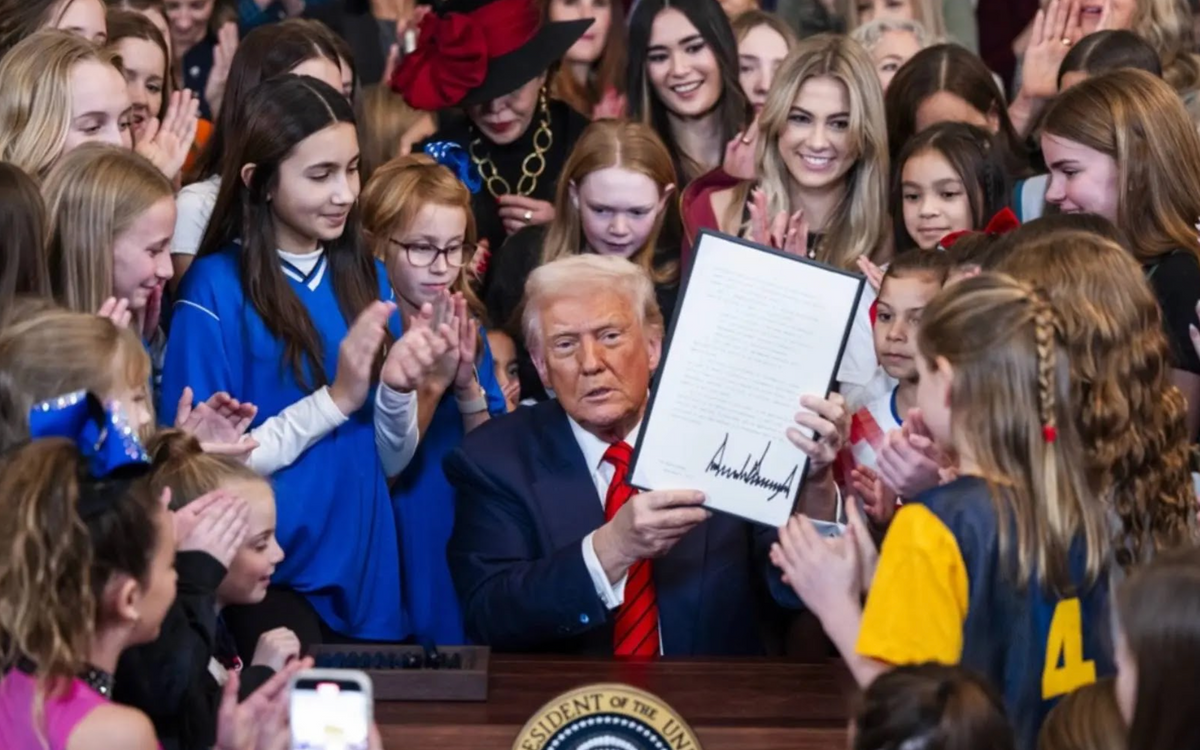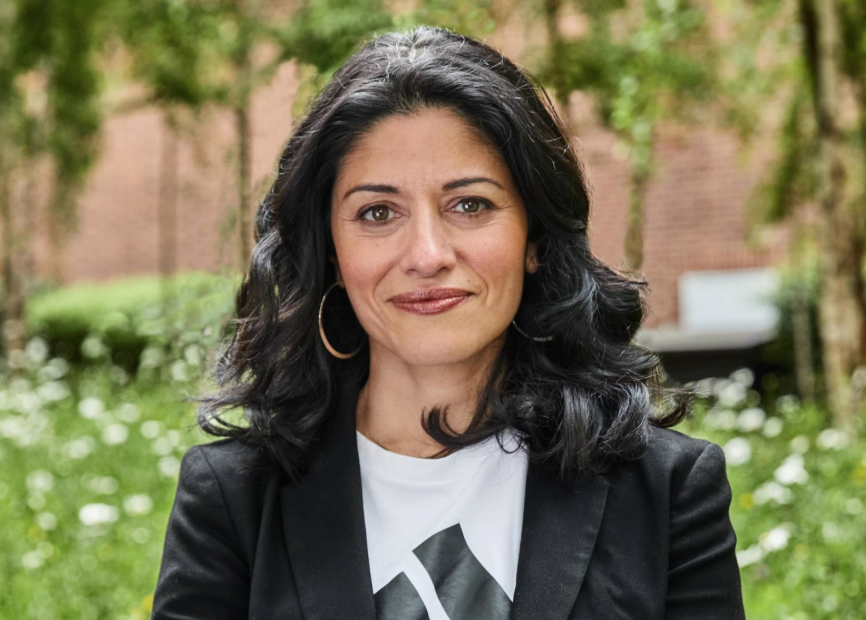Amherst Reflects on Trump’s Transgender Athlete Policy
On Feb. 5, Trump signed an executive order banning transgender women and girls from competing in women’s sports, Staff Writer Lily Earnest ’28 spoke to Amherst community members about the ban’s dangerous implications for transgender individuals as well as our campus culture.

On Feb. 5, President Donald Trump signed the “No Men in Women’s Sports Executive Order,” banning transgender women and girls from participating in women’s sports both in K-12 schools and at the university level. This executive order was one of a number of Trump’s actions that dismantled protections for transgender individuals, leaving them more vulnerable to discrimination.
On Feb. 6, in response to Trump’s order, the National Collegiate Athletic Association (NCAA) enacted a policy barring transgender athletes from women’s sports effective immediately. Previously, the NCAA permitted transgender women to compete in women’s sports if they met certain hormone-related requirements, ensuring fair competition by eliminating testosterone-based advantages over cisgender women.
For many, Trump’s executive order did not come as a surprise. Lilia Manges ’28, a member of the Amherst women’s swim team, said, “I think that a lot of people saw that one coming, but it doesn’t make it any less of a blow,” mentioning that restrictions on transgender people’s rights was one of Trump’s campaign promises, and he wasted no time in delivering.
“What’s happening is they're trying to silence transgender athletes,” Manges said. “This is a foolish and hateful decision,” added a student, who preferred to remain anonymous for safety reasons.
Casie Eifrig ’25, a member of the track and field team, also had a negative response to the order, explaining, “The NCAA has long positioned itself as an advocate for diversity, equity, and inclusion in collegiate athletics, but by enforcing a policy that marginalizes transgender athletes, the organization undermines its own mission.”
Transgender people make up 1% of the population and there are fewer than 10 transgender women in the NCAA out of over 500,000 athletes — meaning this ban will affect a very small portion of the collegiate athletic community. However, many students said that it still sends a harmful message to the transgender community that their existence is disgraceful.
“It is not that serious. Let the women play their sport,” Emma Strawbridge ’25 remarked.
Before the NCAA policy change, restrictions for transgender athletes were already in place. Transgender female athletes were required to undergo at least one year of testosterone suppression treatment in order to compete, and needed to have documented testosterone levels equal to or below the average female level.
Trump and others believe that transgender women have an unfair advantage and are dangerous in women’s sports, but the research remains inconclusive, as few studies focus on transgender women’s capabilities in sports. Recent research funded by the International Olympic Committee has disputed the claim that transgender women generally have a physical advantage over cisgender women. “We simply do not have the science to prove either way at the moment. More research must be done,” said Isabella Baird ’27, a transgender woman.
The Trump administration claimed that the order was in the interest of protecting women in sports, asserting that transgender women athletes pose safety risks and that their participation is unfair. However, Manges argued that the order is “not about protecting women’s sports. It’s using an already struggling community to push a political agenda and provide fuel to a fear-mongering administration. It's only policing women’s sports.” For Manges, being a part of sports has been “an incredibly important part of [her] life and growth,” and she believes that everyone should have the same opportunity.
“The nation’s right-wing does not actually care for women’s sports, nor has cared about women’s sports before the current transgender debate sparked up,” said Baird. Strawbridge echoed this sentiment, stating that the order “is clearly just a tactic to fearmonger, by specifically making trans women – trans students who are just trying to have a college experience – seem dangerous and target a vulnerable population that is already at risk.”
“There have long been transgender [people] and gender nonconformity [in] sports, and it’s always been accompanied by the conservative sort of moral panic,” said Fynn Nadel ’26, co-president of the Queer Athlete Alliance and member of the Amherst men’s swim team. Nadel believes that the ban “not only targets trans athletes, but also cis athletes that have male-presenting features. It offers the opportunity for people to place eyes of scrutiny on them.”
Eifrig affirmed this notion, explaining that the order “pushes bigoted question ... ‘Who is woman enough?’ which disproportionately discriminates against female athletes of color when it comes to invasive sex testing.” She mentioned Caster Semenya, a South Africam middle-distance runner, who was banned from competing in women’s track events because of her naturally high testosterone levels in 2019.
The Queer Athletic Alliance is committed to providing reliable and actionable information to both the Amherst sports community and the broader student community. “Educating people on these issues has been a lot of our work,” said Nadel. To Nadel, being a part of this organization has made them realize that they “could be successful and comfortable,” as an athlete with a queer identity.
The effect that this executive order will have on campus is still unfolding, as the administration navigates how to uphold the college’s values amid the attacks on higher education from the White House. “These questions and this hate also spill over into the campus climate,” Baird said. “I’ve been out for a few years now and am used to shouldering anti-trans discrimination in my daily life, but it has undoubtedly ticked up in the face of these politics. When an entire ruling party’s political agenda is focused on systematically removing me and my people from engaging with society, I can’t help but feel targeted.”





Comments ()